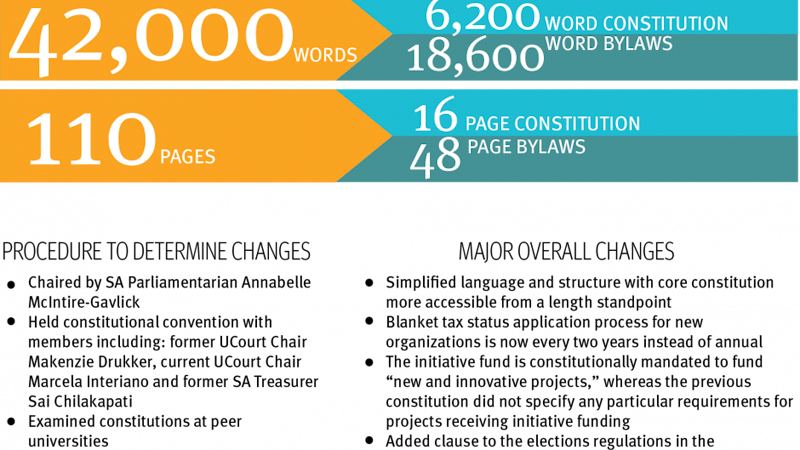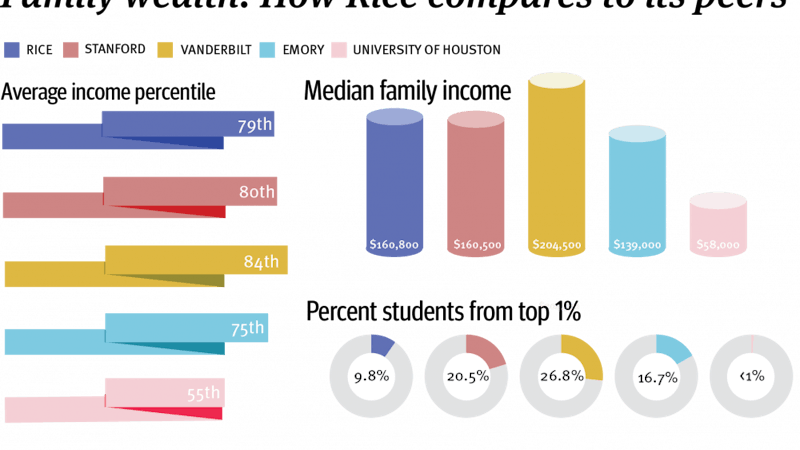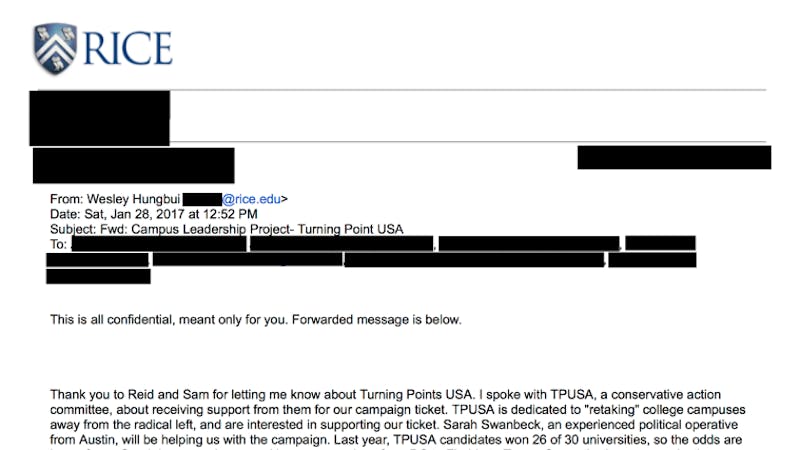
Cost of attendance to rise 3 percent next year
The total undergraduate charges for attending Rice University, including tuition, mandatory fees and room and board, will increase 3.1 percent to $59,458 for next school year, according to Vice President for Finance Kathy Collins. While the cost is the highest ever, its rate of increase was smallest in at least a decade.












